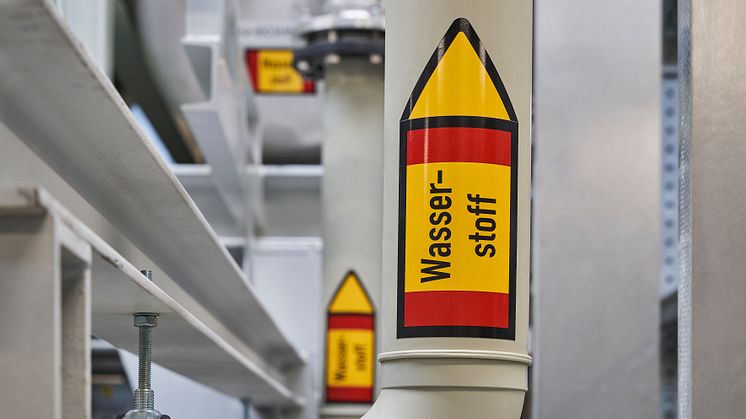
News -
Inland Ports as Hydrogen Hubs: Important Role for Security of Supply in Rhineland-Palatinate
The results of the study on the role of inland ports as hydrogen hubs in Rhineland-Palatinate have been published. Economics and Transport Minister Daniela Schmitt explained that the study highlights the importance of inland ports for the handling and transportation of hydrogen. In view of the fact that more than 80 percent of future hydrogen requirements in Rhineland-Palatinate will have to be imported, the inland ports play a key role as important suppliers, particularly in the transition period until the hydrogen network is complete, especially for regions without a direct connection.
The study shows that transporting gaseous hydrogen in tank containers by barge is the most cost-effective option for transport distances of up to around 400 kilometers. For longer distances, liquid hydrogen in tank containers is considered more economical.
Minister Schmitt emphasized the need to further develop the inland ports with their tank farms into hydrogen hubs, while at the same time pressing ahead with the expansion of pipelines. The development of a hydrogen network is crucial in order to secure the energy supply for industry and the economy and to support the transformation of the economy. She appealed to the federal government to push ahead with the expansion quickly.
According to the study, the transportation of hydrogen in tank containers will remain expensive, especially for larger volumes. In the long term, transportation via pipelines will be the more cost-effective solution. Another potential means of transportation is new inland tankers, which could also transport cold liquefied ammonia in the future.
However, as long as there is no nationwide pipeline infrastructure, inland ports represent an important alternative. They offer an opportunity to increase security of supply and increase independence from pipeline networks. The study examined the inland ports of Bendorf, Trier and Speyer, which are potential hydrogen hubs. These ports are all trimodally connected and have tank storage facilities. The port of Bendorf has already developed a hydrogen concept as part of the HyLand initiative, and H2 activities are planned at the port of Speyer in cooperation with chemical companies.
A module has been developed for a comprehensive assessment of hydrogen logistics, which can serve as a guide for other ports.
